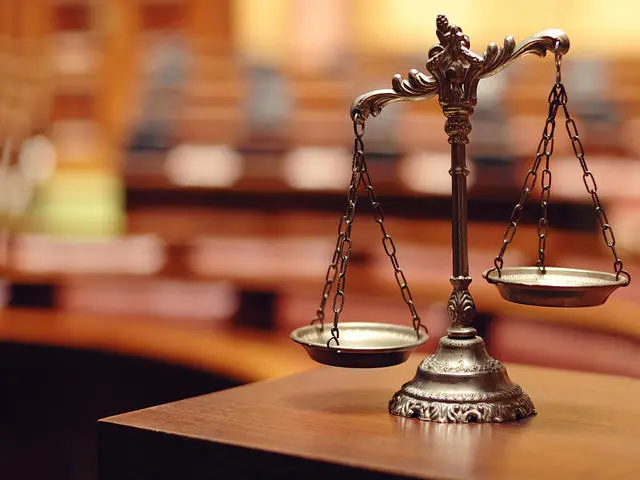Table of Contents
Mississippi’s agricultural industry is one of the state’s most significant economic drivers. From farming to forestry, agriculture shapes the landscape and provides countless jobs. However, this industry, while vital, can also create risks for those working on farms, living near agricultural sites, or driving through rural areas. Agricultural practices, particularly when they involve large equipment, chemicals, and livestock, can lead to accidents and injuries. These injuries can be severe, and in some cases, they may lead to complex personal injury claims.
If you’ve been injured in an accident related to agricultural practices in Mississippi, understanding how the state’s farming and rural traditions intersect with personal injury law is important. The causes of these injuries can range from unsafe working conditions to accidents involving agricultural machinery, and they may be difficult to navigate without legal help. Here’s a look at the various ways agricultural practices can impact personal injury claims in Mississippi and how these cases are handled.
Common Agricultural Hazards That Lead to Personal Injury
Agriculture is one of the most hazardous industries in the U.S., and Mississippi is no exception. Workers in farming, forestry, and other agricultural-related fields face a wide range of risks that can lead to serious injuries. These hazards can also affect those who live or travel near farms and rural areas. Some common causes of agricultural-related injuries include:
- Machinery accidents: Agricultural machinery, such as tractors, harvesters, and plows, is large and powerful. When operators fail to follow safety protocols, or when machines are poorly maintained, accidents can happen. Workers who are caught in or near these machines may suffer amputations, crush injuries, or even fatalities. In rural areas, people may also be injured by farm equipment while driving on rural roads.
- Chemical exposure: The use of pesticides, herbicides, and other chemicals is widespread in agriculture. These chemicals can pose health risks if workers are not adequately protected. Skin contact, inhalation, or ingestion of chemicals can lead to a variety of illnesses, including respiratory problems, skin conditions, or long-term diseases like cancer. Additionally, nearby residents can sometimes suffer from accidental exposure to airborne chemicals.
- Livestock-related injuries: Livestock, such as cattle, pigs, and horses, can be unpredictable and dangerous. Farmers and workers who handle these animals are at risk of bites, kicks, and trampling injuries. Accidents involving large animals can be particularly serious and lead to broken bones, internal injuries, or even death.
- Slips, trips, and falls: Agricultural settings often have uneven ground, slippery surfaces, and obstacles like equipment, tools, or debris. These hazards can lead to slips, trips, and falls, which can cause sprains, fractures, and head injuries. Workers and visitors to agricultural sites can be particularly vulnerable to such accidents.
- Road accidents: In rural areas of Mississippi, farm vehicles often share the road with passenger vehicles. These slow-moving vehicles can create significant traffic hazards, especially if farm vehicles don’t use appropriate warning lights or are operated inappropriately. Accidents between passenger cars and farm equipment can result in serious injuries, particularly in high-speed collisions.
Determining Liability in Agricultural Injury Cases
One of the challenges in personal injury claims related to agricultural accidents is determining who is responsible for the injury. In Mississippi, personal injury claims generally require showing that another party’s negligence contributed to the harm. Some potential parties responsible for agricultural accidents include:
- Employers: If an injury occurs on a farm or agricultural worksite, the employer may be held liable, especially if safety regulations were not followed. For example, if a worker is injured due to a lack of proper training on how to operate machinery or improper maintenance of equipment, the employer could be responsible.
- Equipment manufacturers: Agricultural machinery accidents can sometimes be traced back to a defect in the equipment. If a piece of machinery malfunctions due to faulty design or poor manufacturing, the manufacturer could be held liable for injuries that result from the defect.
- Property owners: In some cases, the owner of a property or farm may be held responsible for an injury if the land was poorly maintained. For instance, if someone is injured by tripping on debris or encountering hazardous conditions that should have been addressed, the property owner could be at fault.
- Agricultural contractors: Many farms and agricultural businesses hire contractors for specific tasks, such as pesticide application or animal handling. If a contractor’s actions cause injury, they may be held liable, particularly if they were negligent in their duties.
- Government and regulatory agencies: Mississippi has a number of regulations in place to protect farm workers and nearby residents. If an injury occurs due to failure to follow safety guidelines or failure to inspect for compliance, a government agency responsible for oversight might share some liability.
Workers’ Compensation and Agricultural Injuries
Mississippi, like most states, has a workers’ compensation system designed to provide benefits to employees who are injured while working. Workers’ compensation covers medical expenses and provides compensation for lost wages. It can also provide benefits if an employee is permanently disabled due to an injury sustained at work.
However, workers’ compensation may not always fully compensate the injured party for all their losses. For example, workers’ compensation typically does not cover pain and suffering or other non-economic damages. If you’ve been injured on a farm and workers’ compensation is insufficient to cover all of your expenses, you may need to explore other legal avenues to seek additional compensation.
Third-Party Claims in Agricultural Accidents
In some cases, injured workers may pursue third-party claims in addition to workers’ compensation. A third-party claim arises when someone other than your employer is responsible for the injury. In agricultural cases, third-party claims may be viable if:
- Defective equipment: If the injury was caused by a malfunctioning tractor, combine, or other agricultural machinery, a product liability claim against the manufacturer or distributor of the equipment could be possible.
- Negligence by a contractor: If the injury occurred as a result of the actions of a contractor hired by the farm or agricultural business, the injured party could file a claim against that contractor.
- Vehicle accidents: If you were injured in a car accident involving farm equipment, the driver of the farm equipment or the farm owner may be held liable for the accident, especially if they were negligent in their operation of the equipment.
Statute of Limitations for Agricultural Injury Claims in Mississippi
If you plan to file a personal injury lawsuit related to an agricultural accident, it is crucial to understand Mississippi’s statute of limitations. In general, you must file your claim within three years of the injury. However, there are exceptions to this rule, especially when it comes to workers’ compensation claims or accidents involving government entities. The sooner you file your claim, the better your chances of securing compensation for your injuries.
How a Personal Injury Lawyer Can Help
If you’ve been injured due to agricultural practices in Mississippi, it’s important to consult with an experienced personal injury attorney. A lawyer can help you navigate the complexities of agricultural injury claims, whether it involves workers’ compensation, third-party claims, or both. They can gather evidence, negotiate with insurance companies, and ensure that you are fairly compensated for your injuries.
Conclusion
Mississippi’s agricultural practices may provide economic benefits, but they can also lead to serious personal injury risks. Whether you are a worker in the industry or someone who lives or travels near agricultural operations, understanding your legal rights is essential if you are injured in an accident. A skilled personal injury attorney can help you assess your situation and explore all available legal options to secure the compensation you deserve.

